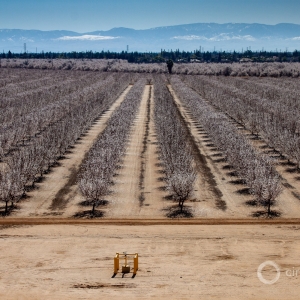The Stream, January 24, 2020: New Trump Water Rule Imperils Streams, Wetlands, Across the U.S.
The Global Rundown
The U.S. Trump administration replaces the Waters of the United States rule, cutting protections for streams and wetlands. Zimbabwe announces that its grain reserves are running low after months of drought. A water utility in California sues the U.S. government over PFAS contamination from firefighting foam used at an Air Force Base. The United States flood buyout program is bogged down by bureaucracy and delays, residents say. A new study finds that switching disinfectants in water systems, which sometimes causes a spike in lead levels, can be done safely.
“I terminated one of the most ridiculous regulations of all: the last administration’s disastrous Waters of the United States rule. That was a rule that basically took your property away from you.” –U.S. President Donald Trump, in reference to his repeal of Water of the United States (WOTUS), a law protecting various streams, wetlands, and other waterbodies across the country. The rollback is favored by farmers and other landowners, who will gain increased control over water on their properties under the new replacement rule. Environmentalists, however, fear the repeal could lead to depletion and contamination of the country’s water resources. A government advisory board warned last month that the replacement rule “neglects established science.” The New York Times
Latest WaterNews from Circle of Blue
U.S. Food Trade Increasingly Leans On Unsustainable Groundwater — Biggest reliance on unsustainable groundwater is in the western states, study finds.
HotSpots H2O: Peace Deal May Halt Siege of Tripoli — If negotiations are successful, the talks could end the country’s civil war, which has raged since 2011.
By The Numbers
100,000 tonnes Grain stocks remaining in Zimbabwe’s reserves, which will only last about a month, according to the country’s agriculture minister. The shortage is driven by an ongoing drought in the southern African nation. Reuters
43,000 Flood-prone U.S. properties that have been bought out with the support of the Federal Emergency Management Agency (FEMA) over the past 30 years. The buyout program, however, remains slow and complicated, and is failing to keep up with the number of homeowners interested in relinquishing their flood-prone properties. Experts warn that demand for buyouts could continue to rise as climate change increases the risk of coastal storms and other flood events. Yale Environment 360
Science, Studies, and Reports
A new study by Washington University in St. Louis, Missouri, found that switching disinfectant types in water systems, a situation that can drive up lead levels in water, can be accomplished safely under the right circumstances. In 2000, Washington D.C. switched from free chlorine disinfectant to chloramine, only to see lead levels in their water systems spike. Since then, other cities have been wary of swapping disinfectants, but researchers say adding orthophosphate to the water prior to switching can help prevent lead contamination. Science Daily
On the Radar
The California-American Water Company (Cal-Am) has filed suit against the U.S. government over water contamination in Sacramento County. The lawsuit, filed in U.S. District Court for the Eastern District of California, claims that the U.S. Air Force knowingly contaminated drinking water by disposing of PFAS-tainted firefighting foam near the water source. Reuters
In context: As PFAS Lawsuits Proliferate, Legal Tactics Emerge.
Kayla Ritter is a recent graduate of Michigan State University, where she studied International Relations and Teaching English to Speakers of Other Languages. She is currently based in Manton, Michigan. Kayla enjoys running, writing, and traveling. Contact Kayla Ritter





Leave a Reply
Want to join the discussion?Feel free to contribute!